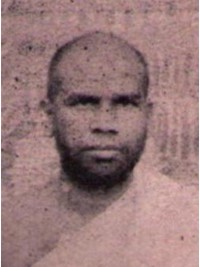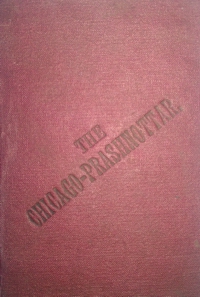16. Question:
God has created all powers in the souls but He does not prompt them to do evil to which they are led of their own accord. Suppose a man gives his dear child a toy to play with but the child injures his eye with it, are the parents to blame for it? Similarly God has given hands, feet, and other organs of actions to beings only for the performance of virtuous actions. If one did evil of his own accord; is God to blame for it?
Answer:
0 simple-minded man, the example of a child which you have given is not correct because the parents of the child do not know that the toy they have given will be so used by him as to injure his eye. If the parents knew this they would never give the toy to the child. If they give it knowingly, they are not his parents but his enemies.
Similarly according to your theory, God is to be regarded as our parent and we are all his children. If He knew that the man who has been given hands, feet, mind, and other senses, would use them so as to commit sins leading him to hell, He would not have created him. If He did not know this, He is proved to be devoid of wisdom and omniscience. If He knew this, the charge of His being our enemy is brought against Him. What was His object in getting so many men doing things which would lead them to hell? God is proved to be unjust in as much as He has supplied man wherewithal to do sin, and then punished him for doing so.
God is thus proved to be unjust, parvi-scient, cruel and unwise. Since it would not be advisable to bring so many charges against Him, it would be better to accept that God did not create sinless souls. This is an answer to your first proposition; and as regards your Second proposition, the refutation is as follows: If you say that God has created only virtuous souls, then the objection is, why are men born blind, lame, cripple, deaf, deformed, and also in low and penury-stricken families?
Certainly the after-effects of virtue do not make men miserable and starving for life and to be drudging for mouthfuls of food. Besides, how could God make the souls virtuous without their having done good deeds before? If He made them virtuous without their previous deeds, He might as well send them to heaven or give them salvation without their doing any virtuous deeds. When it was so easy, why did God create the difficulty of men undergoing such ordeals as the following in obedience to scriptural injunctions: keeping fasts, abandonment of greed, passion and animosity, enrolment in the order of ascetics, anchorites, mendicants &c, adherence to the virtues of compassion, self-control, charity, truthfulness, abstinence from theft and the company of women. Does it not show that God is neither discreet nor wise?
As regards the 3rd objection, the answer is as follows:
If you say that God created the souls encrusted with sin, then does it not show that the souls were charged with sins without having done them? When the God Himself has ruined us, to whom else are we to represent our grievances to the effect that we have been charged with sin by God without our having committed them and soliciting his aid in keeping God from doing so. The unjust God who charges us with sins without our committing them ought never to be adored. If God had created all the souls encrusted with sin, a birth in the family of kings, ministers, order to attain heaven and salvation; military commanders, and millionares, healthy body excellent, form and person, respect at home, and fame abroad, enjoyment of all the five senses &c. &c. would be impossible. Therefore God has not created sinful men.
Answer: To the 4th proposition.
If you say that the souls were created half sinful and half virtuous, the statement is equally preposterous because all souls are not seen half happy and half miserable in the world.
Answer: To the 5th proposition.
This position too is not tenable in as much as it is not found that the majority of beings is happy and the minority miserable, on the other hand, the majority is found to be in misery and the minority in happiness. Under these circumstances, it is established that God could not create the souls in any condition; ergo He could not be the creator. Was God unhappy before the creation, and happy after it?
17. Question:
God is always happy. He had no deficiency in order to make up which, He created this world. He creates the universe in order to manifest His glory.
Answer:
Was not the glory of God manifest before He created the universe? If His glory was not manifest before the creation, God must be in a gloomy mood and anxious about the attainment of His desire and to manifest His glory.
God must therefore be in misery. If He was miserable before the creation why did He remain idle and why did He not remove His misery by creating another universe before this universe.
18. Question:
God has created the universe with the object that the souls may do virtuous deeds and attain unending happiness. He created the universe to do good to others.
Answer:
If it is doing good to others to make them do good deeds and attain happiness, what act of goodness is His towards those who have gone to the hell after committing sins?
19. Question:
Can God be called philanthropic by making the latter unhappy? He would take them out of the hell and send them to heaven.
Answer:
Why did He allow them to go to hell first?
20. Question:
It is God who makes men do virtuous or sinful deeds. They cannot do anything of themselves. Just as a puppet dancer makes puppets dance as he likes, so does God make people do what He wills.
Answer:
If it is not in the power of souls to do anything, they should not be responsible for good or bad results. If a master orders his servant to do anything and the servant does it in obedience to his order and the result turns out to be bad, would the master punish the servant for it? No, never. Similarly if men do good or bad actions in obedience to God's orders they cannot be held responsible for their results. When men have not done good or bad actions, they cannot go to heaven or hell nor can they attain any of the four conditions of life such as (]) heaven (2) hell (3) human life and (4) animal, mineral and vegetable life. When there are no such four conditions of life there is no universe. When there is no universe there are no such scriptures as the Vedas, Puranas, Quran, Tauret, Jabur, Bible &c. When there are no scriptures, there are no religious teachers. When there are no religious teachers, there is no God. When there is no God there is universal void. How can this absurdity be dealt with?
 Shrimat Vijyasandsuri
Shrimat Vijyasandsuri
